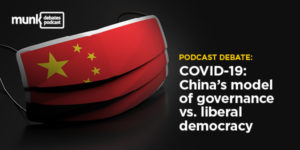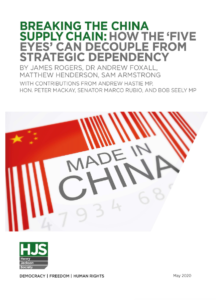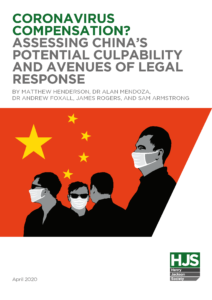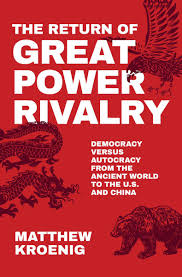 Chinese President Xi Jinping appears to be further consolidating his control of the ruling Communist Party, but Beijing’s overseas influence operations are looking a little ragged.
Chinese President Xi Jinping appears to be further consolidating his control of the ruling Communist Party, but Beijing’s overseas influence operations are looking a little ragged.
The Central Committee’s just-concluded meeting may have made Mr Xi’s plan to retain power in 2022 even more certain. It has done nothing to instill confidence in China’s political future, The Economist reports:
There is no clear line of succession within the party—without Mr Xi, no one in the currently 25-member Politburo would stand head and shoulders above the rest. Younger leaders, such as the party chief of the south-western region of Chongqing, Chen Min’er, who has long been tipped as a forerunner for post-Xi leadership, may lack sufficient seniority to take over in an emergency. Mr Xi’s sudden departure could plunge China into political turmoil.

Henry Jackson Society
It may also, however, be an anxious time behind closed doors, it adds, noting signs of a new purge, this time aimed at the judiciary, police and secret police, to root out “two-faced people” deemed disloyal to the party.
The distinction between US and Chinese responses to the COVID pandemic has fueled a propaganda frenzy, with Beijing officials highlighting the surge in cases in the United States to tout the strength of China’s authoritarian system and deflect attention from domestic problems, The Times reports:
The Chinese foreign ministry has said the pandemic has “torn the emperor’s new clothes” off American democracy. A recent commentary in Global Times, a brash tabloid controlled by the party, called the situation in the United States a “huge human rights tragedy,” echoing language that American politicians often use against China. The failure of many western countries to contain the pandemic has helped Mr. Xi bolster the party, which came under attack for its early missteps in handling the crisis.
“The message is, ‘Look at the way the United States and Europe are dealing with a simple matter of life and death — and look at how your government under the Communist Party and Xi Jinping have dealt with the exact same issue,’” said Steve Tsang, director of the China Institute at the School of Oriental and African Studies in London.
 China attempted to turn its success containing COVID into a soft power victory via “mask diplomacy,” but neither governments nor the public in most countries around the world are buying it, adds SLATE’s Joshua Keating observes:
China attempted to turn its success containing COVID into a soft power victory via “mask diplomacy,” but neither governments nor the public in most countries around the world are buying it, adds SLATE’s Joshua Keating observes:
China’s initial failure to stop the spread of the disease that has transformed life on the planet and the role that the regime’s secrecy and authoritarianism may have played in that failure have only increased skepticism about China’s political model. At the same time, Taiwan’s COVID response—perhaps the most successful in the world—has only made its democratic and transparent political model look more appealing.
The cover-up of information about deaths by the CCP in the initial outbreak period during the first third of 2020 raises the suspicion that at least part of the better Chinese performance since April is due to under-reporting of deaths, notes one analyst. Some counterfactual thought experiments imply that, at most, one third of the discrepancy between the US and China since April may be due to under-reporting.
Some observers increasingly expect Xi to follow Mao in assuming the title of Chairman when his current terms end, essentially allowing him to retain power while avoiding the awkwardness of bucking the tradition of a two-term presidency (though any legal barriers to this were removed by Xi in 2018). This absolute power provides the confidence needed to set ambitious targets for the country’s 14th five-year plan, and even the 2035 vision mooted this month, looking ahead to a year when Xi will celebrate his 82nd birthday, CNN reports.
Writing this week, David Bandurski, a China politics expert at the University of Hong Kong, said such efforts are less about “goals met and goals set, but more essentially about renewing the CCP’s claims to the legitimacy of its power, its system and its methods.”
Xi Jinping remains as powerful as ever and seemingly fit enough to keep going well beyond 2022 https://t.co/a5nk4LWJIC
— The Economist (@TheEconomist) October 30, 2020
The geopolitical rivalry between China and the United States has escalated dramatically, and there are signs that it will not return to the relative calm experienced before, for two main reasons, notes Barry Pavel, senior vice president and director of the Atlantic Council’s Scowcroft Center for Strategy and Security:
- First, the United States government has taken the strategic decision to confront the Chinese Communist Party (CCP) regarding its aggressive practices over recent decades across economic, military, technological, informational, and other spheres. Rather than continue with status quo policies that assumed convergence between China and the community of free-market democracies, the United States, correctly, has begun to push back on China in these domains and now is seeking to rally its democratic allies and partners around this cause. Moreover, this appears to be a relatively bipartisan approach,…
- The second factor is a ramped-up, aggressive approach by China this year in its diplomacy, in its unprecedented military coercive operations against Taiwan, India, and in the South China Sea, in its advocacy for countries to do business with its subsidized, state-owned enterprises such as Huawei and TikTok, and in other areas. This new approach reflects a Chinese perception that the United States is significantly distracted and weakened, and that now is the best time to begin to surge into a position of global leadership.
 China’s authoritarian hammer has been a staple of its strategy from the outset, helping it move quickly and bluntly to vanquish resurgences of the virus, The Times adds. But the government’s tactics also provoked anger among residents, who say the authorities have at times reacted too harshly.
China’s authoritarian hammer has been a staple of its strategy from the outset, helping it move quickly and bluntly to vanquish resurgences of the virus, The Times adds. But the government’s tactics also provoked anger among residents, who say the authorities have at times reacted too harshly.
“Some argue that the US competition with China is only about power, but they are mistaken. Democratic values should shape US strategy for China in several ways,” argues Matthew Kroenig, deputy director of the Scowcroft Center for Strategy and Security and director of the Scowcroft Center’s Global Strategy Initiative:
- First, as I argue in my new book, The Return of Great Power Rivalry: Democracy versus Autocracy from the Ancient World to the Present, we must consider the “hard power” aspects of our democratic values. America’s democratic system provides it with many strengths that it can exploit in this rivalry. The CCP, on the other hand, has many of the common weaknesses of autocracies. B…
- “Second, the threat that China poses is shaped by Beijing’s autocratic system. It is unlikely that a democratic China would be picking militarized border disputes with its neighbors, systematically preying on the international economic system, or engaging in ethnic cleansing.
- Third, Washington can use the rallying cry of freedom versus tyranny to mobilize partners in the free world. Some of our European partners do not feel a pressing military threat, but they are more concerned in some cases than Washington about the gross human rights abuses taking place in China.
“By considering these important ideological aspects, Washington will formulate a more effective long-term strategy,” he adds.







